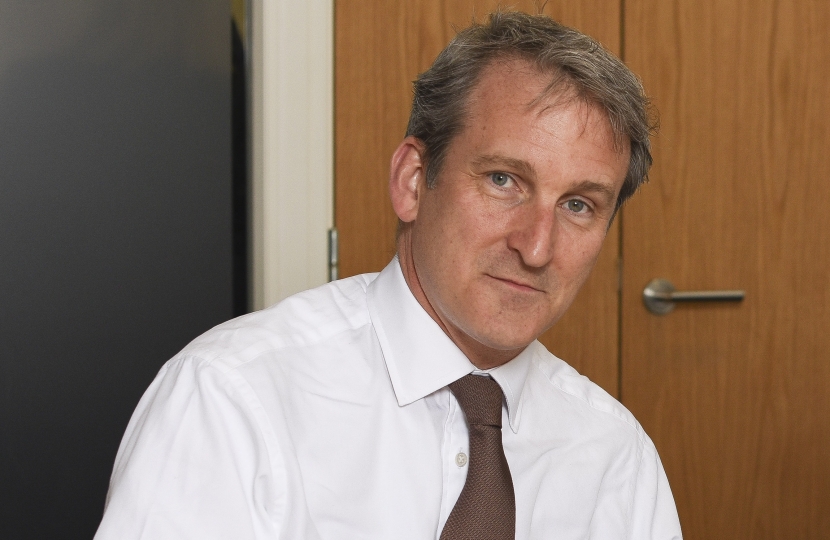
The article below was written by Damian and published in the Herald group of papers on the 30th April:
"The British people have adhered to the social distancing measures in the most amazing way, and that is clear to see from the Transport Use slide that is presented each day at the government press conference. There is no doubt that this has helped to limit the spread of the virus, reduce the number of people needing to be hospitalised, which has protected the capacity within the NHS and helped to save lives.
And despite the sobering daily death toll, it is also clear that people are increasingly restless for life to return to normal. After almost five weeks of lockdown, people of all ages are finding the restrictions very difficult: many older citizens are living alone and missing physical contact with their families and access to regular pursuits, the young are finding the internet a poor substitute for meeting friends and going to school.
None of this is easy. But a return to normal is not on the cards any time soon. We know now that we will need to adopt a ‘new normal’ for quite a long time, and that is going to be challenging for all.
The reality is we do not yet have the tools to eradicate this deadly virus. Amazing work is being done in the development of vaccines, but the scale and complexity of delivering a safe and effective vaccine to a global population will take time, and it is during that critical time we need to find a new way to live with the virus.
The government has made it clear that the current lockdown measures can be eased once five key tests can be met: sufficient critical care capacity, sustained and consistent fall in the daily death rates, rate of infection decreasing to manageable levels, operational challenges - including testing capacity and PPE - able to meet future demand, and being as confident as possible that lifting the measures will not risk a second peak of infections that could overwhelm the NHS.
It was far from certain a few weeks ago that the NHS could cope with the number of people who may been to be hospitalised, and in particular need access to intensive care. That capacity has thankfully not been breached, but it must remain the overriding priority in our response to Covid-19.
Living with the virus will mean determining a balance between greater freedoms for people with greater risks of the virus spreading, but the basic hygiene protocols and social distancing measures will remain the norm. Decisions will need to be taken on which sectors of the economy can resume and in what order, when can schools, colleges and universities open in a way that is safe for students and staff, how should we continue to protect those deemed ‘vulnerable’ and ‘extremely vulnerable’, and is there a safe way for different households to meet.
It is right that scientific data and advice is at the heart of that decision-making, and that we are cautious in how we approach the lifting of measures, but in the meantime, we must keep doing what we have been doing – staying home as much as it is possible to do so.
The fact that the NHS is coping with the demands of the virus is also very important to enable non-Covid patients to be treated. There have been growing concerns that people with serious conditions are not seeking the medical help they need, and there is now a very clear message that the NHS is open and ready to receive calls from anyone that is worried about their health.
GP services, the NHS 111 helpline and A&E departments are there for you, so please don’t put off that call if you have symptoms or concerns that you would like to be checked."


